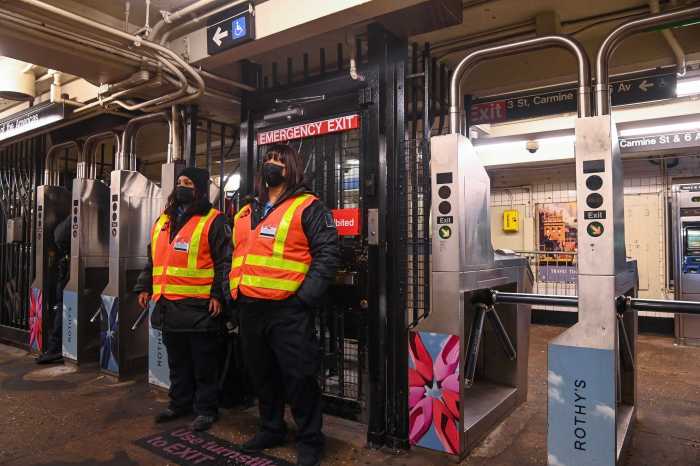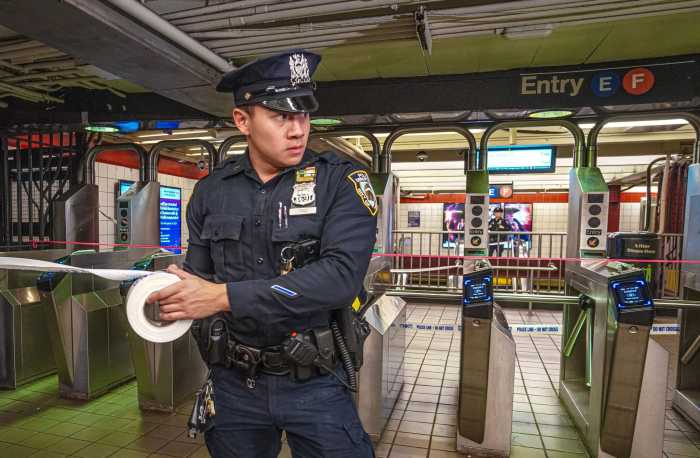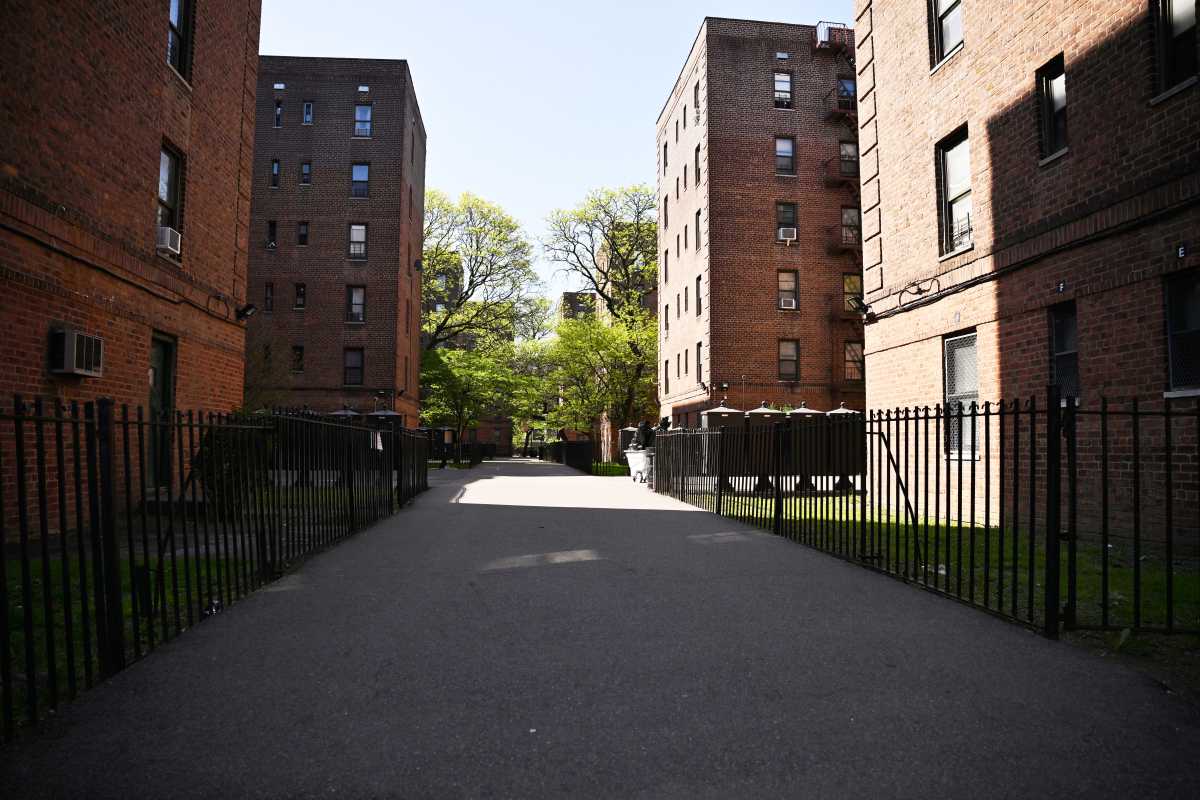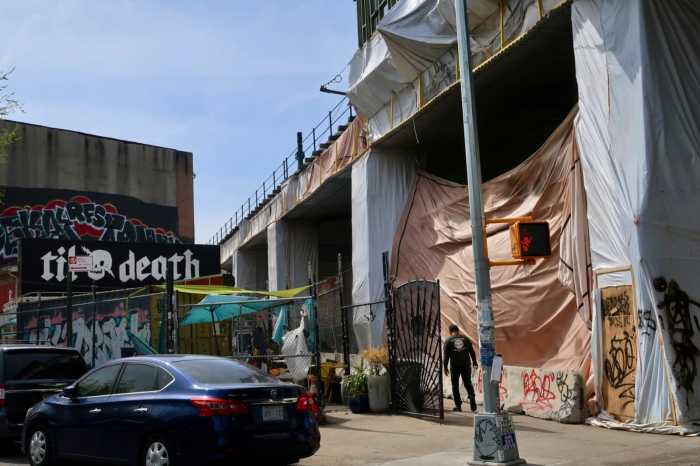With the de Blasio administration preparing to launch dockless bike share service this summer, some experts see the future of cycling while others worry the city is cutting corners.
There are 12 companies from around the world vying for the pilot to bring the emerging technology to areas not currently served by Citi Bike, including the Bronx, Staten Island and sections of northern Manhattan, Brooklyn and Queens.
Unlike the station-based Citi Bike, dockless systems typically let riders park bikes anywhere with automatic locking and unlocking features accessed through a mobile app. Once a foreign concept, dockless bikes have begun popping up in major cities all across the country.
“Dockless bike share is a wonderful innovation because it allows users to travel from one location to another and without having to conform to where the stations are along the way,” said Sarah Kaufman, the assistant director for technology programming at the NYU Rudin Center for Transportation. “This is not just a trendy mode of travel. People are seeing bikes as a great alternative to the subways, which are often slow and delayed these days, and buses, which often travel slower than bikes do.”
The dozen companies in the running here range from the large, global leaders like the China-based ofo and Mobike, to the smaller, Brooklyn-based JUMP Bikes. There’s also LimeBike and Spin, both from California, as well as Pace, MetroBike, P3GM, Lenny Bike, Riide and QuimoCyle. Motivate, the station-based company that operates Citi Bike, is also under consideration. The city plans to launch the pilot this summer.
Polly Trottenberg, the city’s Department of Transportation commissioner, said in a statement announcing the companies that the city was “thrilled” by the “robust” interest to launch service here.
As the city begins interviewing and testing bikes, some companies kept their plans close to the vest.
A representative from the D.C.-based Riide said the company was in “stealth mode” and not ready to publicly discuss details. QuimoCycle doesn’t appear to have much of a presence beyond a website with a nonworking support email.
As a sign of where the industry is leaning, several services are hoping to offer legal, pedal-assisted motorized bicycles, including Jump, ofo and Riide. Motivate is also pitching a pedal-assist e-bike pilot as well, according to a source familiar with the proposal.
Ryan Rzepecki, the founder and CEO of JUMP, said the company’s e-bikes average about 2.6 miles per trip in Washington, D.C., and San Francisco, about a mile longer than the average bike trip overall.
“That means you’re really serving as point-to-point transportation and opening up a wider range of trips,” Rzepecki said. “Electric bikes extend the range of trips and allow people to go over bridges and hills much easier.”
Those bridges and hills can’t lead to parts of the city where Citi Bike currently operates, under the pilot the city has outlined. Motivate has exclusive rights to those areas. Technology like geofencing could allow the city to block dockless bike share riders from locking or accessing bikes on Citi Bike turf.
There are lots of logistical hurdles and small details that need to be worked out for the pilot. E-bikes would need to be charged. Rzepecki said JUMP bike batteries can run about 40 miles. Riders would be incentivized to return bikes to the charging stations. Rzepecki said his service needs about 100 charging stations for every 1,000 bikes.
Bike parking will be an issue for any dockless bike share coming into the city. Most dockless bikes include a lock that runs through the back wheel, though JUMP and Motivate would offer standard locks for riders to utilize racks.
Opponents are worried about whether bikes will be left in responsible places and city officials are trying to ensure that proper space safeguards are in place.
But even some bicycle advocates are concerned about potential public backlash.
Paul Steely White, the executive director of Transportation Alternatives, said the city already lacks enough parking and space for the current levels of cycling in the city — which is why it’s easy to find bikes locked to light posts, scaffolding or trees.
He said he is open to dockless technology, but thinks the city is overlooking the potential of expanding Citi Bike.
“We really would like the city to, as they explore dockless, to really recognize and fulfill the demands that exist for citywide Citi Bike,” White said. “We wonder if the city is pursuing this pilot for the right reasons. Are they just pursuing this because they are trying to deliver bike share on the cheap and because they’re trying to avoid public space battles that are required to make room for bikes in our streets?
“The city can’t opt out of facing that political reality that you still need to reorganize street space to accommodate even dockless bike share,” said White, who’d like to see more curbside bike parking. “Those are the tough public policy decisions that [Mayor Bill de Blasio] frankly should be leading on.”
A DOT spokesman maintained that the city was undertaking a pilot to test the feasibility of the technology in the city. He said part of the pilot will be to determine “whether and how much dedicated bike parking” would be needed to support dockless systems.
Kaufman said cities like Paris had a nice mix of station-based and dockless bike and scooter services. She agrees on the need for more bike parking space, but sees potential for dockless service — and e-bikes in particular — as a way to add another layer of biking to the city, beyond Citi Bike’s bread and butter: short trips from the subway to an office or home.
“What I would love to see these companies include is a variety of bikes,” she said. “In Paris, their bike share offers child-sized bikes that could be rented out with adult-sized bikes. And with pedal-assist, I’d like to see cargo bikes. You could actually use them for trips to the grocery store and reduce truck traffic from deliveries.”



































